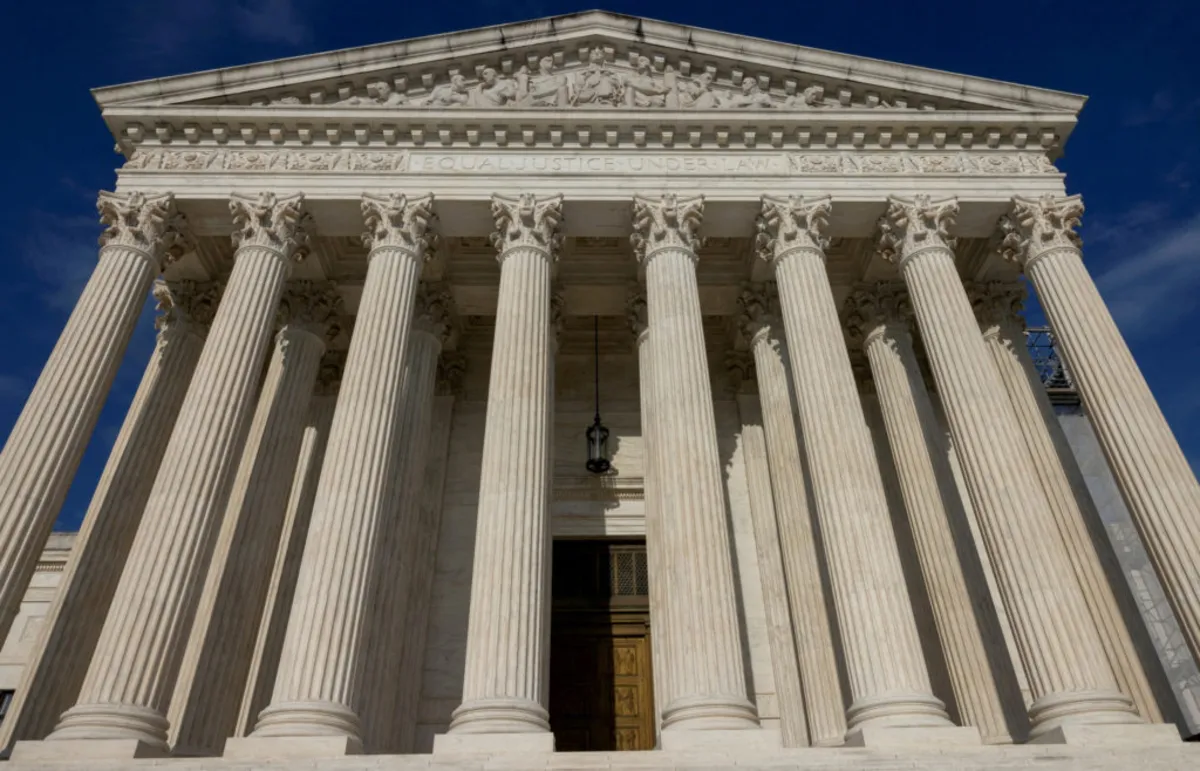
In a significant legal development, Chief Justice John Roberts issued a temporary pause on Monday regarding a midnight deadline for the Trump administration to return a Maryland man who was mistakenly deported to a notorious prison in El Salvador. This decision follows an emergency appeal from the Justice Department, which argued that U.S. District Judge Paula Xinis had overstepped her authority by ordering the return of Kilmar Abrego Garcia to the United States.
The administration has acknowledged that Kilmar Abrego Garcia should not have been sent to El Salvador, noting that an immigration judge had determined he was likely to face persecution from local gangs upon his return. However, the government contended that since Abrego Garcia is no longer in U.S. custody, there is no practical way to facilitate his return. The administration's legal representatives expressed their concerns, stating that Judge Xinis's injunction, which mandated that Abrego Garcia be returned by midnight, was "patently unlawful."
Solicitor General D. John Sauer characterized the order as part of "a deluge of unlawful injunctions" issued by judges that aim to impede President Donald Trump's agenda. The emergency appeal was directed to Chief Justice Roberts, as he oversees appeals from the Maryland jurisdiction. Additionally, the Trump administration is seeking the Supreme Court's approval to resume deportations of Venezuelan migrants alleged to be gang members to the same Salvadoran prison, invoking an 18th-century wartime law.
The federal appeals court in Richmond, Virginia, recently denied the administration’s request for a stay on this issue. Judge J. Harvie Wilkinson, in a brief opinion accompanying the unanimous denial, stated, "There is no question that the government screwed up here." The White House has labeled Abrego Garcia’s deportation as an “administrative error,” while simultaneously portraying him as an MS-13 gang member. However, Abrego Garcia’s attorneys argue that there is no substantial evidence supporting this claim.
Abrego Garcia's legal team has raised serious concerns about the executive branch's actions, emphasizing that the government cannot arbitrarily detain individuals, transfer them to foreign prisons in violation of court orders, and then evade judicial scrutiny by invoking the separation of powers. In a response filed shortly after the temporary pause was issued, Abrego Garcia's lawyers reinforced their stance on the unlawfulness of his deportation.
Kilmar Abrego Garcia, a 29-year-old Salvadoran national, has never been charged or convicted of any crime. He was detained by immigration agents and deported last month, despite holding a work permit from the Department of Homeland Security (DHS). Abrego Garcia was actively pursuing a journeyman license as a sheet metal apprentice, and his wife is a U.S. citizen. In 2019, an immigration judge had explicitly barred the U.S. from deporting him to El Salvador, underscoring the complexities surrounding his case.
This legal scenario highlights the contentious nature of immigration policy under the Trump administration, especially regarding deportations and the treatment of individuals facing potential persecution. As the case continues to unfold, the implications for immigration law and executive authority remain at the forefront of legal discussions.